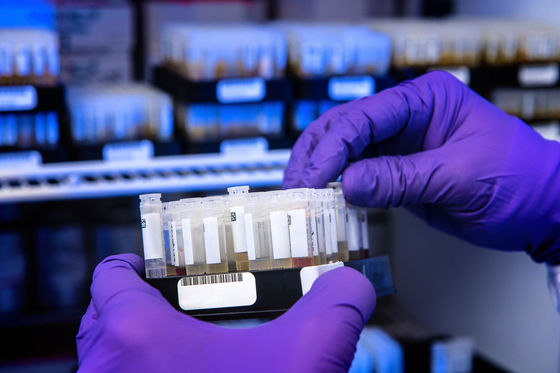A study investigating how mutations of the new coronavirus have diversity in the bodies of vaccinated and non-vaccinated people

Viral and host factors can shape the mutation of the novel coronavirus (SARS-CoV-2). However, little is known about the lineage-specific and vaccine-specific mutations that occur in vivo. Therefore, a research team led by Haogao Gu, a postdoctoral researcher at the Department of Public Health Laboratory Sciences at
Within-host genetic diversity of SARS-CoV-2 lineages in unvaccinated and vaccinated individuals | Nature Communications
https://www.nature.com/articles/s41467-023-37468-y

Despite more than 69% of the global population being vaccinated against the novel coronavirus, the emergence of new variants increases the risk of SARS-CoV-2 infection and reinfection. In fact, SARS-CoV-2 variants of concern (VOC) have been demonstrated to have the ability to evade innate and acquired immunity. Therefore, it is ``extremely important'' to examine the impact of vaccination on SARS-CoV-2 mutation and evolution, Gu and colleagues say.

Previous studies on SARS-CoV-2 have examined how SARS-CoV-2 variants propagate and evolve at local, regional, and global scales throughout a pandemic. However, little research has been done on how SARS-CoV-2 mutations occur and accumulate in the host.
Viral mutations within the host can be caused by DNA replication errors, damage or editing, and can be fixed by

Therefore, the research team analyzed 2820 SARS-CoV-2 respiratory samples collected in Hong Kong from June 2020 to September 2022 to find SARS-CoV-2 in the bodies of vaccinated and non-vaccinated individuals. We investigated what kind of mutation pattern the mutant strains show.
In COVID-19 unvaccinated individuals, respiratory samples of VOC strains alpha, delta, and omicron show greater diversity within the host than non-VOCs, suggesting that genome-wide refinement selection (mutation natural selection that tries to eliminate
In contrast, two or three doses of Pfizer's novel coronavirus vaccine 'Comirnaty' or Sinovac's novel coronavirus vaccine '

``This result suggests that vaccination may not increase the exploration of the sequence space of the SARS-CoV-2 protein and may not promote the emergence of virus variants,'' the research team explained. increase.
Related Posts:
in Science, Posted by logu_ii







